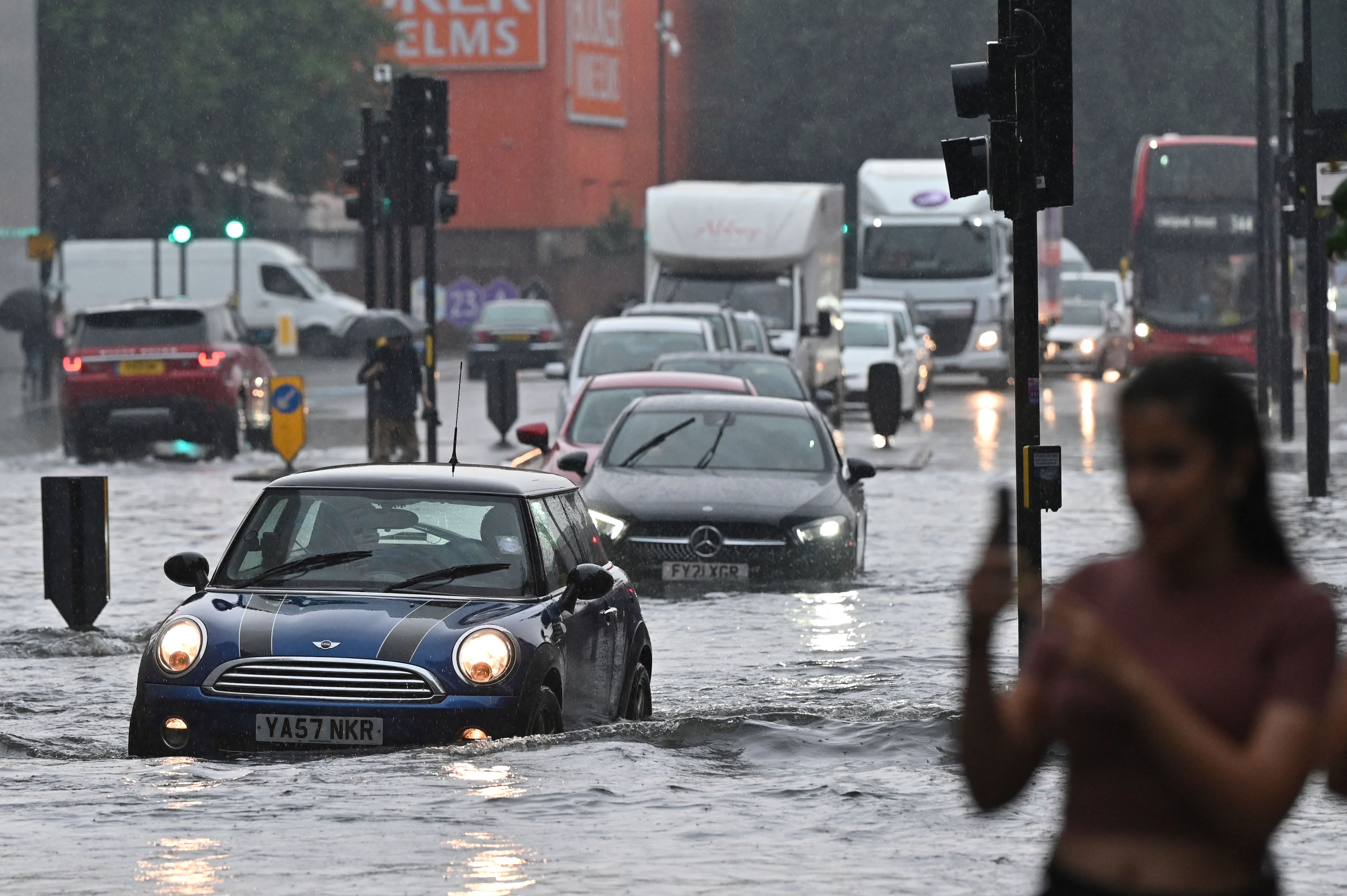Time is running out to ensure a successful Cop26
Net zero cannot come at zero cost. Johnson should start preparing the ground to head off the backlash his MPs fear, writes Andrew Grice


Another week, another three reports highlighting the climate crisis. Not that we really needed them, as extreme weather conditions on a daily basis somewhere in the world show. It’s coming closer, as I discovered when I got stuck in a flash flood while driving in north London.
The Met Office found 2020 was the first year on record to figure in the top 10 for heat, rain and sunshine. The National Infrastructure Commission warned that families would face bills of up to £400 a year for food, travel and goods to enable the UK to remove greenhouse gases from the atmosphere. The Climate Crisis Advisory Group, chaired by David King, the former chief scientific adviser, said the world needed to take dramatic action, such as refreezing the Arctic, to “buy more time.”
Next week, another landmark report is expected from scientists on the UN intergovernmental panel on climate change, providing the backdrop to the Cop26 conference in Glasgow in November.
You might think the extreme weather would force the 195 countries taking part to strike a deal, but the political outlook is far from bright. Alok Sharma, the cabinet minister who will chair the event, admits there is not enough progress on ending the use of coal for power generation, which is opposed by China and India, and ensuring rich countries honour their overdue promise to provide $100bn (£72bn) a year to poor nations.
Although the G20 countries account for 85 per cent of annual emissions, some nations baulk at stronger language about the 2015 Paris Agreement goal to limit the global temperature rise to 1.5C above pre-industrial levels.
Sharma describes finding the money as “a matter of trust”. Yet the government’s advisers warn its own trust problem threatens to derail the Glasgow conference.
Lord Deben, the Tory former cabinet minister who chairs the climate change committee, said the long-awaited strategy for meeting its net-zero emissions pledge by 2050 must be published soon, “if people are going to take us seriously as chairman”. He warned that the government had “made it more difficult for itself” by “immorally” breaking its promise to spend 0.7 per cent of gross national income on overseas aid.
Boris Johnson’s approach is often to hope, as one cabinet minister puts it, that things will be “alright on the night”. But some insiders fear time is running out to ensure a successful Cop26. Perhaps Johnson intends to ride to the rescue in Glasgow, grab the reins from Sharma and secure a deal. But that won’t necessarily work; as the Paris conference showed, the critical groundwork must be done in advance.
Announcing a crucial part of the UK’s strategy – removing gas boilers from 29 million homes – was delayed (again) by objections from Rishi Sunak amid rising Treasury fears about the cost of net zero, which is increasingly shared by Tory backbenchers.
Although the government will probably provide cash help for low-income families to replace their boilers, many Tory MPs fear the party’s better off, traditional supporters will be alienated by the cost to them, and that Johnson will pay a heavy price. They worry that, with inflation rising, the cost of living, which dominated the politics of the 1960s and 1970s, will return to the top of the agenda, hurting the Tories in both their red wall and southern heartlands.
The Office for Budget Responsibility estimates the net-zero bill at £469bn but that is manageable over 30 years (and less than the cost of Covid). The cost of climate inaction would be greater both economically and for the planet. The UK could miss an opportunity to go for gold in the green technology race and create the 250,000 jobs Johnson wants to see concentrated in the north and Midlands.
Some Whitehall insiders note the contrast between the response to the Covid and climate crises. As one put it: “If we had the same approach on Covid, we would still be debating which groups would get the first vaccine trials. We are out of time.”
As the Tory rebellion over net zero shows, politicians often dodge long-term questions because they are obsessed with the short term – and the next election. There are ominous reports Johnson might delay a ban on installing gas boilers from 2035 for another five years.
The heat and buildings plan will now be published after parliament’s summer recess (a feeble, if traditional, excuse for delay) and the wider strategy before Cop26. Aides insist Johnson wants to take people with him. But so far, our good news prime minister has talked about jobs and growth, but not the cost for both government and consumers. “Cake, have, eat,” he said in April.
Net zero cannot come at zero cost; Johnson should start preparing the ground to head off the backlash his MPs fear. It’s time for the leader who wants to “level up” to level with the public.






Join our commenting forum
Join thought-provoking conversations, follow other Independent readers and see their replies
Comments